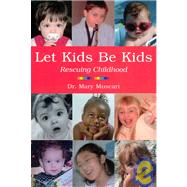
University of Alberta Educational Psychology PhD student Lindsey Leenaars has completed a study that assessed what types of high school students are being indirectly victimized. This includes being involved in emotionally damaging scenarios such as receiving hurtful anonymous notes, being socially excluded, or having rumours spread about them, including threats of physical harm. [continue reading…]
Adolescent Health
 Tips on spotting the warning signs of cyberbullying and how to help your child deal with the issue, from Mary Muscari, associate professor at Binghamton University, State University of New York, and author of
Tips on spotting the warning signs of cyberbullying and how to help your child deal with the issue, from Mary Muscari, associate professor at Binghamton University, State University of New York, and author of
Not My Kid: 21 Steps for Raising a Nonviolent Child and Let Kids be Kids:Rescuing Childhood. Cyberbullying, the sending or posting of harmful or cruel text or images, using the Internet or other digital communicationdevices, affects almost half of today’s teens. Cyberbullying messagesand images may be posted on personal, web sites or blogs, ortransmitted via email, discussion groups,  chat, Instant Messenger (IM),text and smart phones.
Â
Source:Â USA Today
 A new government survey shows that teenage girls are more than twice as likely as teenage boys to have experienced major depression in the previous year. Just last week, a White House report linked teen depression to marijuana use. Other research has suggested that depression in early adolescence might adversely affect growth and development, school performance and relationships with family and friends, according to the new report.
Â
In the now-famous Vanity Fair photo, 15-year-old Miley Cyrus is suggestively wrapped in a satin sheet, her hair disheveled, her red lips in a pout.
Some say the photo is nothing than an artistic portrait of a pretty teenager. Others say it’s a disturbing, Lolita-like way for a young girl—let alone a Disney princess who’s every move is watched and emulated by legions of young fans—to be depicted.
But is it really so unusual? In an article published in a new edition of Dalhousie University’s Nabokov Online Journal, Meenakshi Gigi Durham argues the media—from advertisements to Seventeen magazine—are circulating damaging myths that distort, undermine and restrict girls’ sexual progress. [continue reading…]
